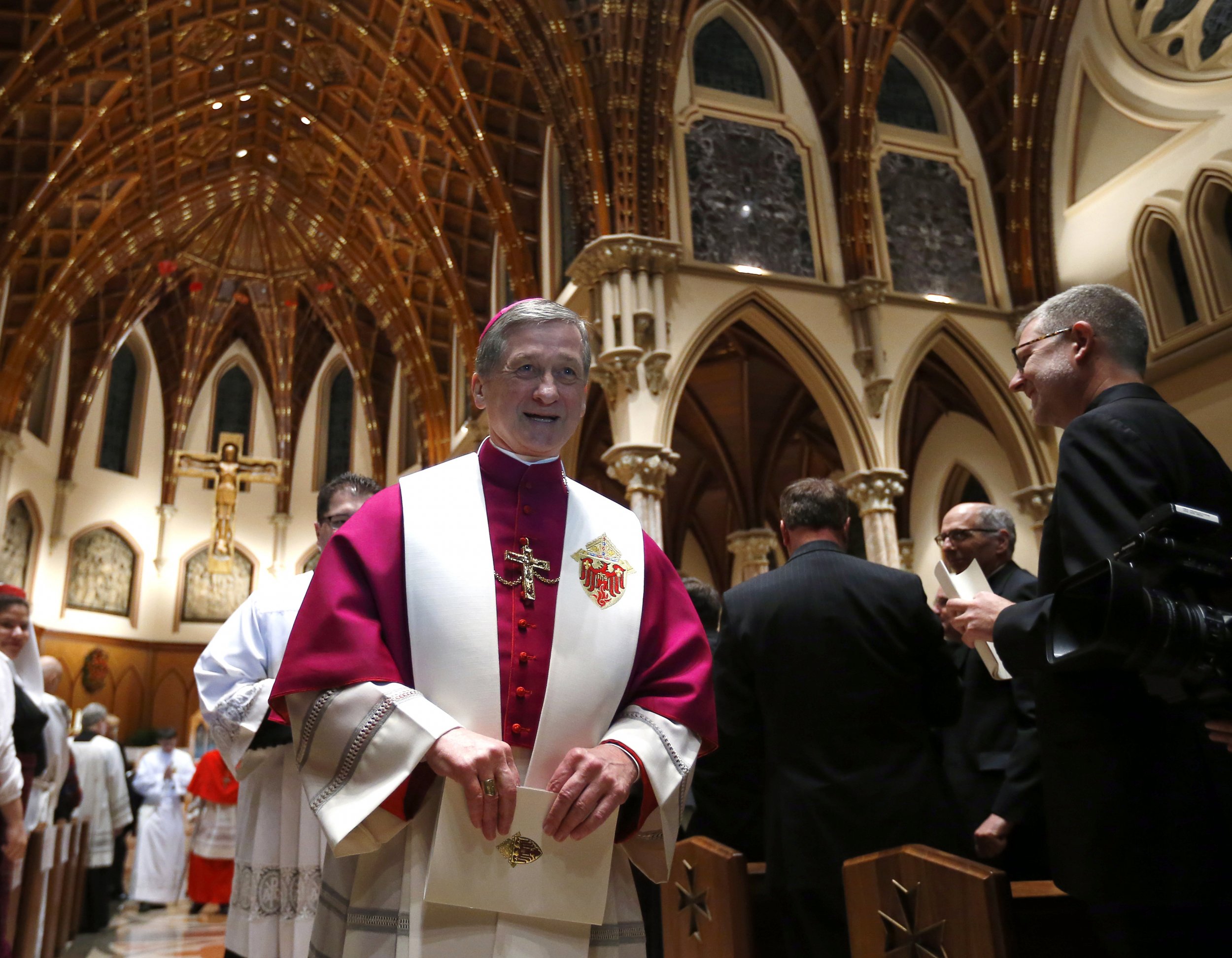
The United States Conference of Catholic Bishops (USCCB) last week announced the selection of four delegates for the Vatican's 2015 conference (or synod, as it is called) on marriage and the family in Rome.
The choices, whether conservative or moderate, were expected by some to shed light on how much the USCCB supports Pope Francis's progressive agenda.
Archbishops Charles Chaput of Philadelphia and Jose Gomez of Los Angeles will join the USCCB's president, Archbishop Joseph Kurtz of Louisville, Kentucky, and its vice president, Cardinal Daniel DiNardo of Galveston-Houston, in Rome in October, Crux, a Boston Globe site dedicated to Catholic news, reported Thursday. Acting as alternates in case one of those chosen can't attend will be Archbishop Salvatore Cordileone of San Francisco and Blase Cupich, the incoming archbishop of Chicago.
Meanwhile, on Monday the pope confirmed his first papal visit to the U.S. will take place next year.
Kurtz and DiNardo were expected to attend the 2015 synod; as president and vice president of the U.S. conference, they were shoo-ins to go to Rome, and both were present at the previous gathering, which took place in October. Cardinals Timothy Dolan of New York and Donald Wuerl of Washington, D.C., are likely to attend as representatives of the body charged with planning the synod, as both serve on that body.
But what does the selection of Chaput and Gomez say about the American bishops' thinking? Can their selection be interpreted as a message for the pope?
Chaput's selection could signal a number of things. The pope plans to visit Philadelphia in September to attend an international conference organized by Chaput on the subject of family, the same theme that dominated the synod discussions in October. The bishops may have selected Chaput because he is involved in the ongoing discussion of marriage and the family within the American church. The election of representatives with experience related to a particular issue to synods dealing with that issue is a growing trend among the bishops, Thomas J. Reese, a senior analyst for the National Catholic Reporter, tells Newsweek.
Chaput's conservative politics might also say something about how the American representatives feel about family matters. In the past, the Philadelphia archbishop has come out against gay marriage and reproductive rights. Notably, he reportedly said a vote for abortion rights supporter (and Catholic) John Kerry in the 2004 presidential election was "a sin that must be confessed before receiving Communion," according to The New York Times. Chaput later said the Times misquoted him and refused to speak to reporters from the paper for six years.
And Gomez? The U.S. conference usually chooses a Hispanic delegate for two reasons, Reese says. First, being able to speak Spanish will make communicating with other delegates from around the world much easier. Second, Hispanics represent the fastest-growing segment of the Catholic Church. And the fair treatment of immigrants, an issue close to many Hispanics in the U.S., is a hot-button issue for the church. It is also one that Gomez has spoken about in the past, calling for "comprehensive reform of [U.S.] immigration policies" in a November 21 op-ed for his archdiocese's newspaper, The Tidings.
Perhaps more surprising than who the conference chose is who they didn't. Cardinal Sean O'Malley, the archbishop of Boston who is widely considered to be a good friend of the pope's among the U.S. bishops, will not attend, Reese said. And Cupich, who was picked to become Chicago's archbishop by the pope personally—a sign of Francis's trust—was selected as only an alternate by the conference. The fact that neither of Francis's top two men is among the American bishops came as a surprise to Reese, he said.
An anonymous bishop who attended the conference told The Washington Post that around 30 percent of the bishops in attendance were "wholly enthusiastic about Francis's tone, style and the possibility of substantial reforms," while another 20 or 25 percent were "fearful that the changes in terms of Communion for the remarried and on gay and lesbian issues will lead to a form of cascade, undermining the moorings" of the church. About half the bishops fall somewhere in between, the bishop said.
Uncommon Knowledge
Newsweek is committed to challenging conventional wisdom and finding connections in the search for common ground.
Newsweek is committed to challenging conventional wisdom and finding connections in the search for common ground.
About the writer
Taylor is a general assignment reporter for Newsweek where he writes about U.S. politics, crime and courts, religion, marijuana law, ... Read more





